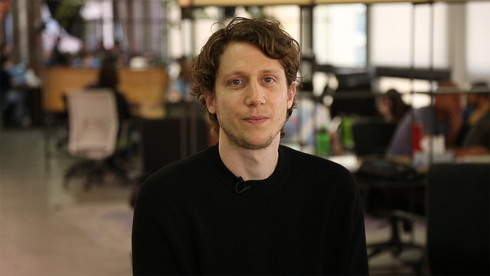$700 million in fundraising and two new unicorns in one day, Tuesday, not including several smaller funding rounds. And if nothing out of the ordinary happens Wednesday, Israeli company Riskified will raise another $300 million in its Wall Street IPO at a value of $3 billion. A billion dollars in three days is just another week for the Israeli high-tech industry. In the previous week, $800 million were raised by Kaltura, Outbrain, and REE in public offerings in New York.
However, this enterprise has lost its balance and is at a critical point, where Israel may not enjoy the full benefits of the money that is flowing here. The reason is the severe shortage of workers in the field. The shortage is reflected in the spike in high-tech wages to more than double the average salary in Israel, NIS 31,200 (just below $10,000) gross compared to NIS 12,700 ($3,900). It is also reflected in a huge wave of turnover that is hitting the local industry, as well as reflected in the growing recruitment of programmers from outside Israel, especially from Eastern Europe.
For now, the numbers are not very high. It is the same 15,000 workers that Israel has been lacking for several years. However, as huge sums of money continue to flow to Israel, the gap is expected to grow. The new Israeli government has set an employment target of 15% in high-tech out of the total number of workers in its economy, compared to 10% today. Although it is clear that Israel cannot be turned into the world's high-tech factory (although there are quite a few high-tech entrepreneurs who believe so), a share of 20%-15% of total employees is a realistic scenario. At least as far as the demand goes.
The capital raised by unicorns and newly publicly traded companies is a critical financial resource, as well as a resource that produces hunger. Immediately upon completing the fundraising, company executives feel enormous pressure to deliver, or at least to show some initiative, to meet the investors’ expectations. The fastest and simplest way to reach the performance investors expect is through scaling up its workforce. Every company that raises funds these days immediately goes into a hiring process, which can reach dozens of employees every month.
And this is where the demand meets the lack of supply. A target of 15% employed in high-tech means almost double today’s industry workforce - 580,000 people compared to 335,000. 20% employed in high-tech in five years, is more than doubling the number of people employed in the field today.
High-tech studies from kindergarten
Contrary to popular belief, one does not have to be a math genius to work in high-tech. The initial core of technology developers should indeed be composed of experts or “tech talents", but as entrepreneurs and executives in the field explain, from the 100th programmer in any company, every set of hands with a head on their shoulders will do fine, at a job for which it is possible to earn double the average salary early on.
Beyond that, the profound change that is taking place in the Israeli technology industry in recent years is the demand for non-technological professions. 30%-40% of the positions high-tech companies are trying to fill are in the areas of human resource management, graphic design or sales. This is because unlike in the past, high-tech companies are not looking to recruit these workers from the U.S. or Europe, rather from Israel, especially as digital transformation trends allow everything to be done remotely, including marketing and sales, with fewer face-to-face meetings. Due to that, industry officials say that the big knowledge gap of advanced math is replaced with advanced English.
And this is where the problem begins, and unless the government steps in, it will result in funds raised by technology companies going overseas as quickly as they entered, without Israel benefiting. In the absence of an adequate Israeli workforce, this money will pay the salaries of workers abroad. Already today, 10% of high-tech workers pay a quarter of Israel's taxes, so doubling the number of high-tech workers has enormous economic significance for the country.
According to the multi-year budget plan distributed by the Ministry of Finance, one of the reasons for the increase in state tax revenues in the first half of the year is the tide in capital markets that raised the value of Israeli high-tech companies (those who went through an IPO or merged with a SPAC). They estimate that this will contribute NIS 18 billion ($5.5 billion) in tax revenue this year (compared to NIS 14.3 billion, or $4.4 billion in 2020), almost three times the average contribution in the previous five years (2015-2019).
The plan presented by the Minister of Innovation, Science and Technology, Orit Farkash Hacohen, in collaboration with the Minister of Education, Yifat Shasha Bitton, to introduce "high-tech studies" from kindergarten is a step in the right direction, but it should have been implemented three years ago if not five. The cost of introducing high-tech content in the kindergarten age is ridiculous, about NIS 150 million a year ($46 million), compared to the benefit it is expected to bring to the economy. Moreover, such programs have existed for years in countries that have not necessarily engraved on their banner the high-tech nation idea, and have other industries with relative advantages such as the U.S., England, Singapore and South Korea.
Coding as a second language
To this day, Israel was comfortable relying on middle-class parents from established communities to pay for science and electronics after-school classes, cyber school programs, and English tutoring, to prepare the next generation of soldiers for the IDF’s technology units. And this is exactly what the sad reality looks like, the vast majority of those employed in high-tech today grew up in very specific cities such as Omer, Raanana, Kiryat Ono, or Shoham. If we were to measure the proportion of high-tech employees in the central region, we would probably reach a high double-digit percentage. In these places, absurd situations arise, such as a high school's decision to hold a screening test for its computer science program, an opposite to the national goal. The problem arose because too many students had high enough grades to be accepted into the program, which required the opening of another computer class. Instead of doing so, it was decided to artificially reduce the number of recipients while companies are fighting for each employee.
Meanwhile, an hour's drive from the center of Israel, in places like Beit Shemesh, Acre, Yeruham and Kiryat Gat, it is as if they had not heard of the existence of high-tech. Advanced mathematics and English studies are rare events, sometimes, schools that want to present higher averages encourage students to participate in lower classes and get a higher grade. A move that in the future may constitute a barrier to integration in high-tech. Without these studies, it is difficult to reach the next stage in the high-tech path - the technology units in the IDF and, of course, academic studies in exact sciences.
In a country like Israel, whose growth and tax revenues depend so much on high-tech that even the Finance Ministry’s Chief Economist Shira Greenberg admitted this week that Israel's economy is an option on the Nasdaq, coding should become another kind of foreign language. Basic programming studies should be introduced in elementary school, visits to high-tech companies in middle school, and studies with high-tech people at high school are exactly what is needed in both the country’s periphery and high-tech industry.
The current government has all the tools to change direction in reality and not just in slogans, otherwise those who will benefit from the billions raised by Israeli entrepreneurs will be the tax authorities in Ukraine, Poland, and India. Israel will be just another stop.


